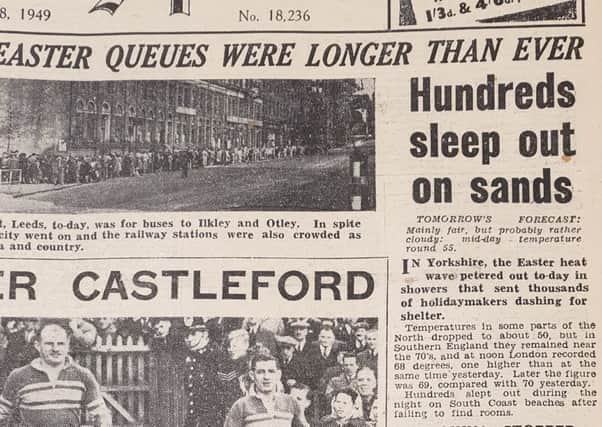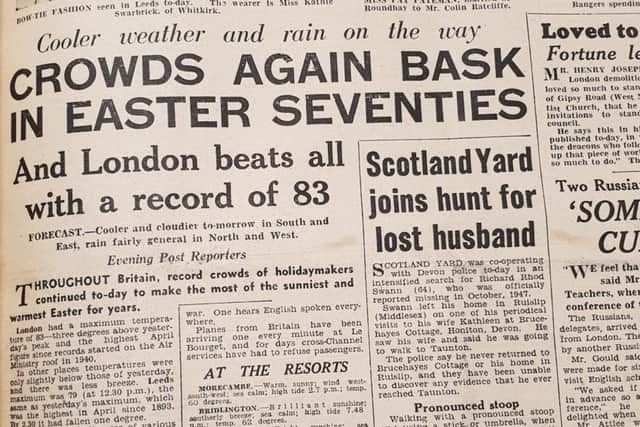So hot they slept on the beaches and queued by the thousand to get to coast


While the weather further north wasn’t as clement and a series of shower put paid to any notion of sleeping on Filey beach, that didn’t stop people in Leeds queuing round the block for buses to Ilkley and Otley. Our YEP picture from the time shows the line of would-be holidaymakers snaking its way from The Headrow.
The article reads: “The temperatures fell from 60 at 10am to 50 at 1pm and there were showers but despite the change, holidaymakers flocked from the city in thousands. They were rewarded when the temperature rose again to 60 as the sun broke through.
Advertisement
Hide AdAdvertisement
Hide Ad

“Shortly after 11am when three crowded excursions left City Station for Scarborough, it was announced to hundreds of people that booking for Scarborough was stopped.”
It goes on: “The queue divided itself between Wetherby (for the races) and Bridlington and Morecambe.
In other news, a group of children playing near Halton Moor Avenue, found a bag full of silver heirlooms. The bag, discovered beneath a hedge, was stuffed with silver candlesticks, spoons, vases, a silver teapot and other articles. Leeds CID were said to be investigating.
And finally, The Republic of Ireland Act 1948 came into force on Easter Monday.
Advertisement
Hide AdAdvertisement
Hide AdThe Act declared Ireland may be officially described as the Republic of Ireland and ended the remaining statutory role of the British monarchy in relation to the state, by repealing the 1936 External Relations Act.